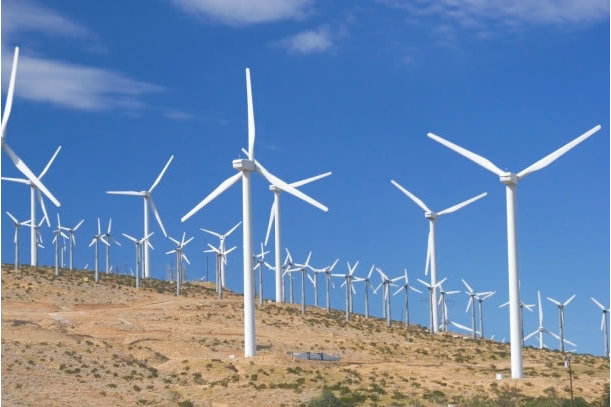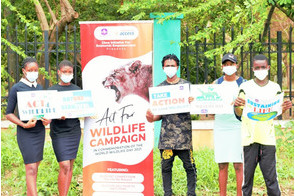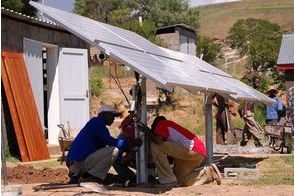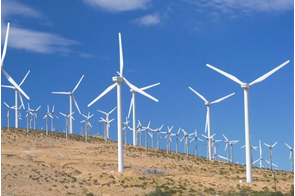Climate fund endorses Rwanda, Uganda renewable energy plans

Summary
SREP is providing $50 million each to Rwanda and Uganda to help develop financially sustainable long-term markets.
Climate Investment Funds (CIF), the multilateral programme for financing climate-resilient development, has today endorsed the renewable energy projects of Rwanda and Uganda. The projects are receiving funding under CIF’S dedicated fund for Scaling Up Renewable Energy in Low Income Countries Program (SREP).
Climate Investment Funds have been designed to bridge the financing and achievement of transformational change towards low-carbon and climate-resilient development in 72 developing and middle income countries. The funds, being implemented with the multilateral development banks (MDBs), would mitigate the challenges of climate change and reduce greenhouse gas emissions.
SREP is one of the CIFs’ funds. The $796 million fund is helping to deploy renewable energy solutions for increased energy access and economic growth in the world’s poorest countries.
SREP is providing $50 million each to Rwanda and Uganda to help develop financially sustainable long-term markets for the private sector provision of off-grid electricity services in the landlocked East African countries.
Rwanda is committed to providing electricity access to 70% of the population by 2018 – up from only 23% this year – through a wide range of renewable resources.
Senior SREP Coordinator Zhihong Zhang said, “Rwanda has a very ambitious target of electrification through both on-grid and off-grid solutions. SREP support will target the development of off-grid energy markets to help bring electricity to unserved communities in rural areas, create employment opportunities and generate income.”
“SREP funding can act as a catalyst and will help improve the enabling environmental conditions to unlock and systematically scale-up private investments. About 1.5 million Rwandans are expected to benefit from the SREP programme,” he added.
Meanwhile, Uganda is placing energy at the forefront of its social economic development. Right now, only 17% of the population has access to electricity. In rural areas, that figure drops to seven percent.
“With a population of 35 million, more than 29 million people in Uganda do not have access to electricity,” said Zhang. According to Zhang, SREP funding “will help tackle this challenge by supporting Uganda in developing indigenous renewable energy resources and will offer opportunities for development even in remote areas of the country.”
“Ugandans have the potential to change the energy sector in the country and attract investment from other sources in the long-run,” Zhang added.
Robert Nyamvumba, Director of the Energy Division from the Ministry of Infrastructure in Rwanda said, “This endorsement will help to unleash the potential of the private sector to provide off-grid energy solutions using renewable energy sources. SREP funding will mean many Rwandans living in rural areas will have access to energy and improve their lives through development activities as well as create an enabling environment for businesses in the communities.”
James Baanabe, Uganda’s Commissioner of the Energy Efficiency and Conservation Department in the Ministry of Energy and Mineral Development said, “Energy is the driver of social economic development so adequate and reliable renewable energy is vital to our vision of becoming a prosperous country within 30 years.”
The Commissioner said, “Uganda is blessed with a number of renewable energy sources. SREP will contribute to the development of our renewable energy for the social and economic development of our country.”
Other CIF funds are the $5.3 billion Clean Technology Fund (CTF) for middle-income countries for the transfer of low carbon technologies in renewable energy, energy efficiency, and sustainable transport.
The $785 million Forest Investment Program (FIP) supports efforts of developing countries to reduce deforestation and forest degradation and promote sustainable forest management that leads to emissions’ reductions and enhancement of forest carbon stocks (REDD +).
The $1.2 billion Pilot Program for Climate Resilience (PPCR) is the $1.2 billion fund helping developing countries integrate climate resilience into development planning.
Related
-
Access Bank’s environmental sustainability credentials
Through its Green Social Entrepreneurship Program, Access Bank has empowered 238 entrepreneurs, 70% of whom are women.
-
First two projects for Africa Climate Fund get approval
The AfDB-managed ACCF was established in April 2014 with a EUR 4.725 million contribution from Germany with the objective ...
-
AfDB to triple Annual Climate Financing to nearly $5bn by 2020
The African Development Bank has committed almost $7 billion to support climate-resilient and low-carbon development in ...










